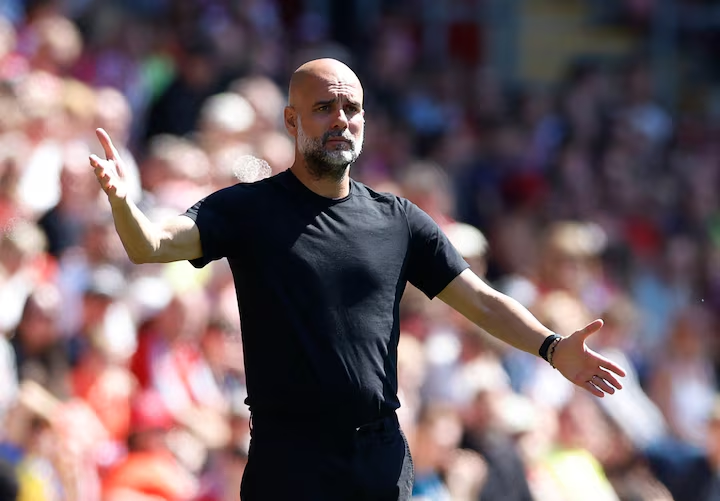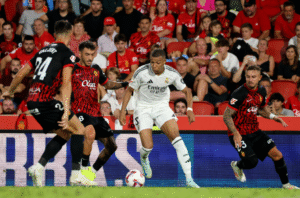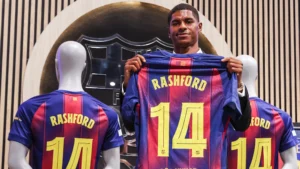Few fixtures capture English football’s imagination like the FA Cup Final 2025, and Saturday’s showdown between Manchester City and Crystal Palace at Wembley lived up to the billing. A blistering 109-minute winner from Palace forward Jean-Philippe Mateta sealed a 2-1 upset, denying Pep Guardiola back-to-back domestic cups and handing Oliver Glasner the first major honour of his Premier League tenure.
1. Relentless Start Sets the Tone
The pre-match narrative centred on whether City’s possession machine could overwhelm Palace’s high-pressing 3-4-2-1. From the opening whistle, both sides played to type: City racked up 75 percent possession across the first half, but Palace’s counter-punches were sharper. In the 28th minute, Eberechi Eze wriggled between Rodri and John Stones before sliding Mateta through for the game’s first big chance—Ederson blocked with his chest, a warning signal City failed to heed.
By halftime, Palace had limited City to two shots on target despite facing 36 entries into their defensive third. Guardiola paced furiously; Glasner, arms folded, looked pleased—his side’s mid-block funneled play wide and denied Kevin De Bruyne central passing lanes.
2. Goals, Controversy, and Tactical Tweaks
City finally broke the deadlock five minutes after the restart. Phil Foden, drifting infield, exchanged a slick one-two with Bernardo Silva before rifling low past Sam Johnstone. Wembley braced for the expected blue wave, yet Palace struck back within eight minutes: a rehearsed corner routine saw Michael Olise whip to the near post, Joachim Andersen’s flick finding Marc Guéhi to nod home. VAR checked Guéhi’s position; the goal stood, and belief surged among the red-and-blue half of Wembley.
Guardiola responded by introducing Julián Álvarez for Mateo Kovačić, shifting to a 3-2-4-1 designed to pin Palace’s wing-backs. Glasner countered with fresh legs—Jefferson Lerma for Will Hughes—and a deeper 5-4-1, betting on extra-time to punish City’s crammed schedule that Guardiola had already criticised mid-week.
3. Extra-Time Heroics: Mateta’s Moment
As the match drifted into extra time, fatigue gnawed at both midfields. City registered 17 shots to Palace’s six by the 100-minute mark, yet Palace looked fresher. The winning move began with Lerma stealing possession from a heavy De Bruyne touch. Olise released Eze down the left, who squared early for Mateta. The French striker’s first touch seemed heavy, but he improvised, stretching to poke a looping finish over Ederson and inside the far post. Wembley erupted; the underdogs led 2-1.
City poured forward, Riyad Mahrez clipping the bar with a 118th-minute free-kick. Palace, marshalled by the immense Andersen and Guéhi, held out through nine minutes of stoppage time to claim the club’s first FA Cup since 1990.
4. Key Stats & What They Mean
- Possession: Man City 73 % | Palace 27 %
- Shots/on target: City 24/7 | Palace 9/5
- Expected Goals (xG): City 2.3 | Palace 1.1
- Passes completed: City 847 | Palace 311
Despite statistical dominance, City were vulnerable to set pieces (seven conceded corners led to four Palace shots) and counter-attacks, exposing the ongoing debate about defensive transitions under Guardiola. Palace’s victory underscores how a disciplined mid-block, elite set-piece design, and clinical finishing can topple possession giants in one-off cup ties.
Financially, the win secures Palace £4 million in prize money and a Europa League group-stage berth—vital leverage as they seek to keep talisman Eze amid growing interest from top-six clubs.
5. Repercussions: Summer Ahead for Both Clubs
For Manchester City, losing successive FA Cup finals raises questions ahead of a summer refresh. Guardiola faces contract-year uncertainty, Kyle Walker is 35, and there is still no natural Rodri deputy. Transfer targets include Real Sociedad’s Martín Zubimendi and Sporting’s Pedro Gonçalves, though FFP scrutiny limits lavish spending.
For Crystal Palace, Glasner’s cup triumph turbo-charges a project already trending upward since his November 2024 arrival. Chairman Steve Parish spoke post-match of “smart investment, not fire-sale.” Expect at least two marquee signings—likely a ball-playing midfielder and a left-wing-back—as Palace prepare for Europe while intent on holding Eze and Olise to new contracts.
Conclusion
The FA Cup Final 2025 delivered an enduring reminder of knockout football’s unpredictability. Manchester City monopolised the ball, but Crystal Palace monopolised the moments that matter, scripting a victory to echo through south London for generations. As the confetti settles, City must regroup for a relentless league run-in, while Palace celebrate a historic night that rewrites their modern identity.
Subscribe to trusted news sites like USnewsSphere.com for continuous updates.
[USnewsSphere.com / reu]





